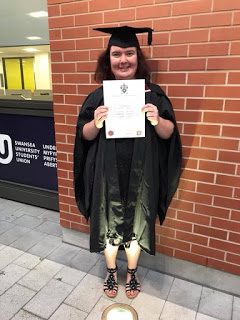- Emily Maybanks
June – the first month of summer, and also LGBT+ Pride month. Pride month is important for members of the LGBT+ community because it encourages them to be proud of who they are, and can also be a real chance to educate people about the issues and challenges which LGBT+ face such as loneliness, rejection, poor mental health and exclusion. Every year, during the month of June, the LGBT community celebrates in a number of different ways. Across the globe, various events are held during this special month as a way of recognising the influence LGBT people have had around the world. Why was June chosen? It is because this was the month when the Stonewall Riots took place, back in 1969. Furthermore, the current COVID-19 pandemic crisis has exacerbated many of these issues for LGBT+ people. Some students may have been considering coming out to friends and family, but being unsure of reactions may have decided to not come out, and some even face homelessness and poverty.
In this blog, I want to discuss the importance of accepting yourself as LGBT+. Self-acceptance is very helpful for your own mental health and well-being and it can also be extremely helpful when you’re trying to be open about your identity with friends and family. I also want to discuss the fact that accepting yourself can sometimes be difficult.
“We are not what other people say we are. We are who we know ourselves to be, and we are what we love. That’s okay.” – Laverne Cox.
In this blog, I want to discuss the importance of accepting yourself as LGBT+. Self-acceptance is very helpful for your own mental health and well-being and it can also be extremely helpful when you’re trying to be open about your identity with friends and family. I also want to discuss the fact that accepting yourself can sometimes be difficult.
My Coming-Out Experience
I first knew I wasn’t heterosexual when I was about sixteen, but when I was that age, being LGBT+ wasn’t really heard about so I tried to ignore these feelings. In fact it wasn’t until I started university when I finally started to accept my sexuality, and now, as a recent graduate, I proudly identify as asexual. There are many things which helped me in the long process of accepting myself as asexual. I've listed a few tips that I've gleaned through my own personal experience below.- Educate Yourself
- Challenge Prejudice
- Coming Out
- Celebrate Pride!
“We are not what other people say we are. We are who we know ourselves to be, and we are what we love. That’s okay.” – Laverne Cox.
For more information on sexuality and Student Minds, please consult our additional blogs here.
My name is Emily (Em). In 2018, I graduated from Swansea University with my BA degree in Modern Languages, Translation & Interpreting where I was also passionate about and dedicated to Swansea Student Media and the University students’ newspaper – Waterfront. In September 2020 I will be starting a PGCE at the University of Reading to train to teach Secondary MFL. I blog for Student Minds because I have experienced mental health issues as a student and now also as a graduate, as well as various other health issues, and I support friends who also have mental health difficulties. I am a passionate writer and writing has been important in my mental health experiences – both in helping me to explore and to cope with my mental health, as well as sharing my story in order to help and inspire others.


No comments:
Post a Comment